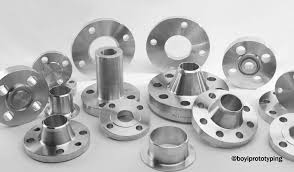5 Things to Consider When Investing in a Business Server Upgrade

Your server is an important business investment. When it comes time to upgrade, you want to ensure that you’re getting the best possible price.
Upgrading to the right server solution can have a significant impact on your productivity levels. However, a suboptimal solution may cost you more in the long run.
1. Performance
Modern businesses collect and store vast amounts of data and documentation. For this, they require functional servers. However, some businesses are hesitant to invest in new technology. They cling to existing servers that are past their prime. This can be costly.
As servers age, they become less reliable and more prone to failures. In addition, they may not be able to handle newer workloads. Continuing to use them can result in slower performance, workflow bottlenecks and reduced productivity.
A business server upgrade can be an excellent way to re-boot your IT capabilities and improve overall performance. When investing in a new system, you must consider your needs and the capabilities of the various available products. For instance, some systems are optimized for certain types of workloads while others offer better support for disaster recovery. Your IT team can use industry experience and measured data to identify the best solution for your organization’s workload. They can also help you decide which hardware and software products to choose, as well as how to configure and deploy them.
2. Scalability
Choosing a business server upgrade can be a complicated decision. A professional IT company in NJ can work with your organization to explore all of your options, helping you make the best choice for your business needs.
A key consideration in any business server upgrade is the scalability of the new hardware or software solution. A suboptimal solution might not be powerful enough to handle your company’s workloads, leading to downtime that negatively impacts customers and employees alike.
To avoid scalability issues, it’s important to plan ahead. Your internal or outsourced IT team should use industry experience and measured data to estimate your technology needs over the next five years. This way, you can choose a scalable solution that will grow with your business.
A business server upgrade can be expensive, but the upfront costs are usually offset by the savings in day-to-day operations, maintenance costs, and potential downtime. By considering these key points, you can ensure your business gets the most out of its investment.
3. Security
Servers are high-performance hardware or software that stores and delivers data to workstations on a business network. They help small businesses manage security updates, email, files, printers, remote access, and more. While servers are typically physical hardware, there are many alternative cloud-based products that perform a similar function.
As your business grows, you’ll need your computer systems and networks to keep up. Using outdated equipment can alienate customers and clients, frustrate employees, and cause downtime that can lead to lost productivity. Rather than waiting for a critical system to fail, invest in a new server upgrade that can scale with your business.
Modern server solutions are designed with cybersecurity in mind, helping reduce cyber threats and vulnerabilities. These include regular security patch updates, firewalls, and continuous traffic monitoring. These tools can prevent data breaches, third-party access to sensitive information, and downtime that can affect productivity. They may add to your overall server costs, but they’re critical for maintaining operational continuity and reducing risk. A faulty or outdated server can put your entire business at risk.
4. Convenience
In modern times businesses collect a massive amount of data which must be stored. To store this data and documentation, functional servers are needed. However, these servers are expensive and many business owners hold on to their old ones for a long time. This could end up costing your business more in the long run.
Keeping old servers can also be a security risk. Servers that have passed their manufacturer warranties disconnect from manufacturer support and no longer receive critical updates. This can leave your servers vulnerable to the latest malware attacks. Older hardware can also cost your organization more money in maintenance costs and contracting professionals to fix problems that arise.
Additionally, a new server will have an OS that is compatible with your hardware and capable of taking full advantage of it. Running an unsupported OS can cause issues that will eventually lead to a crash. If your servers are crashing often, it is a sign that it’s time to consider a replacement. This will improve productivity and reduce operational costs in the long run.
5. Warranty
A warranty is a great way to keep your hardware protected from the high costs of repair or replacement. Servers, like any other IT hardware, have limited lifespans and it is important that businesses understand this and act accordingly.
As servers age, they become less efficient, experience a slowdown in performance and require more maintenance and support. Generally speaking, industry professionals recommend upgrading a business server every 3 to 5 years. Once a server becomes out of warranty it can mean expensive repairs for the company and security issues can occur if newer operating systems are released which the older model cannot support.
If your hardware is out of warranty or the manufacturer has stopped supporting it, it may be time to consider a business server upgrade. A business without a server can grind operations to a halt and lose important data, which isn’t an option that any organization wants to take. Keeping your hardware protected with a warranty is an easy and affordable investment that will save you a lot of money in the long run.







